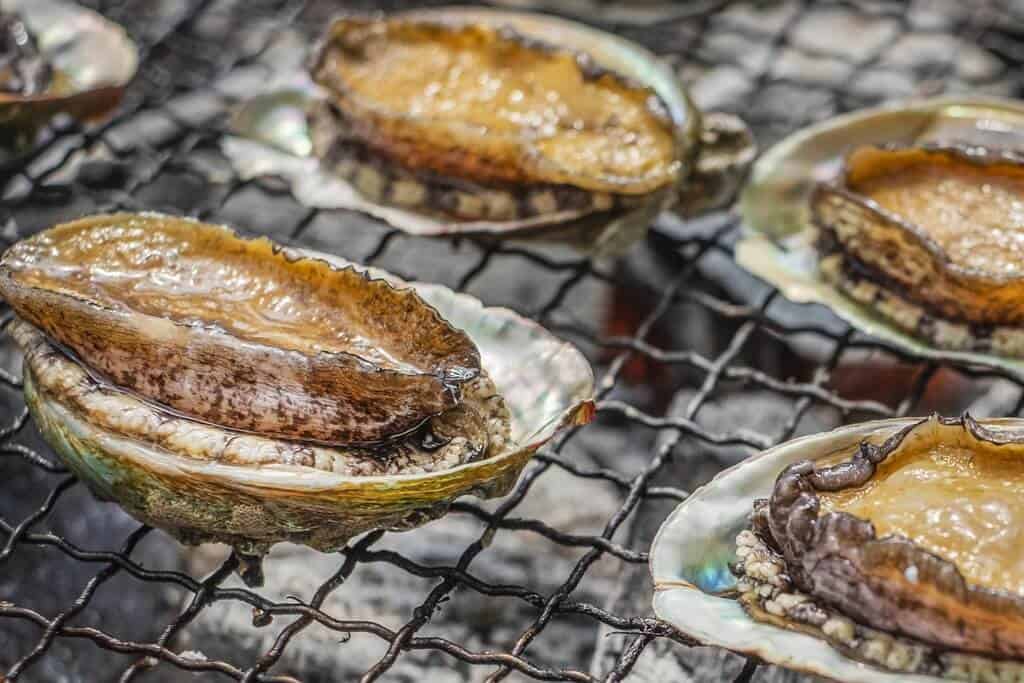
Awabi (あわび) is the Japanese word for abalone, famous for their distinctive, ear-shaped shells and valued for their tender and flavorful meat.
Awabi, known as abalone in English, is a treasured delicacy in Japanese cuisine, renowned for its tender and flavorful meat. This marine mollusk, with its distinctive ear-shaped shell, has historical significance, dating back to ancient times. Abalone features prominently in Japanese history and culinary traditions, evident from its mention in the Engishiki, a 10th-century document, and its role as a symbol of good fortune in ancient texts like the "Nihon Shoki" and "Kojiki." Historically, it served as a luxury gift and offering, particularly during special occasions and festivals. Today, awabi is celebrated in dishes such as sashimi, sushi, and simmered preparations. The main varieties found in Japan include kuro awabi, megai awabi, madaka awabi, and ezo awabi, each with its distinct attributes. Catching abalone happens primarily between November and December, emphasizing sustainable practices to protect the species. The article also touches on a traditional recipe for preparing abalone sushi, illustrating its culinary appeal. Overall, awabi is both a cultural emblem and an exquisite gastronomic experience in Japan.